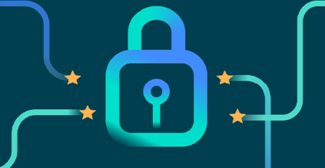The Faux Hackers who Hacked the word Hacking

For those who prefer their world neatly divided into black and white, and who abhor ambiguity, join me in the revolt against using the word hacking in a both a positive and negative manner.
For those of us in the IT security space, it’s really very simple. Hackers are criminals to be loathed only slightly less than those who harm children. Hackers inflict billions of dollars of damage and keep large numbers of people sleepless by night and living in fear by day.
Increasingly, the term hack or hacking is being used in an overtly positive manner – enter the Life Hackers. Google Trends shows a 4X increase in the use of the phrase Life Hack over the past few years. And major networks such as ABC and CBS feature helpful content about Life Hacking and how to improve your digital life.
#1 with Merriam Webster
The dictionary shows the most common use of the term hacker is for a person who illegally gains access to a computer system. And when most people hear the word hacker, they associate it with the evils of computer hackers. These hackers are criminals, acting alone or as part of a criminal conspiracy, and they are trying to hurt you and steal from you.
Of course, not all hackers are pure evil. Depending on your political views, “hacktivists” who hack in the name of a cause can be considered a positive force. For example, Anonymous has at times challenged the drug cartels (until a member was kidnapped) and even taken down child pornography rings.
Learn about OneSpan Cloud Multi-Factor Authentication:
Life Hackers: Resourceful Gurus of Shortcuts
Whereas computer hackers hurt people, steal or destroy assets, and generally can ruin a CISO’s entire day, Life Hackers do the opposite, they develop and share strategies that make life easier. They typically provide tools and techniques that make seemingly burdensome tasks easier.
There is an active page on Reddit entitled “Life Pro Tips” where Life Hackers post helpful life hacks daily. Some examples of life hacks include: how to find a lost dog, how to look better in photographs, what to do if you drop your phone in water, and how to develop friendships after college.
Often written in a concise, step-by-step form, most life hacks are universally relatable. For this reason, life hacks are considered by many web surfers to be some of the most useful content on the web.
The Evolution of the Word “Hacking”
The meaning of words can change over time and I accept that. The term hacking is in the process of evolving from describing a criminal attack into a socially beneficial activity, and the word hacker is losing its malicious connotation. Regardless, a hacker is always an expert in something, whether that’s (defeating) computer security or cutting corners in life. The word hacker has come to represent technical expertise in any area.
Still, I miss the good old days of black and white TV and classic westerns. The bad guys always wore a black hat so you knew who the cattle hackers, the train hackers, and the bank hackers were. They usually ended up getting shot by the end of the show by a guy with a white hat, and everyone considered that a happy ending. I guess I’ll just have to settle for better security and less nostalgia.










